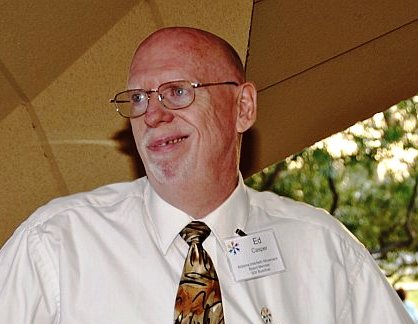| SGI Buddhism embraces diversity and individuality Rev. Dr. Martin Luther King, Jr. once stated that Sunday morning was the most segregated day of the week in America. While this is still largely true, this piece is about a notable exception to that observation, the Buddhist community Soka Gakkai International-USA (SGI-USA). Founded in 1930, the Soka Gakkai International (SGI) is a socially engaged, grassroots Buddhist movement with members in 192 countries and territories. The SGI bases its practice on the philosophy of Nichiren, a 13th Century Japanese monk who asserted that the Lotus Sutra is Buddhism’s most profound teaching. Each SGI organization adapts Nichiren Buddhism to its local culture without compromising the essence of the practice. The United States is one of the most culturally and racially diverse countries on Earth. And SGI-USA’s members reflect that richness. In his book, Buddhism in America, religious scholar Richard Hughes Seager writes, “(SGI-USA’s) tenor and tone are…very much in keeping with American values, while its varied membership gives it a multicultural and multiracial foundation…” (pg. 88). So why is SGI-USA so diverse? The answer is found in Nichiren’s writings and SGI’s vision. In one of Nichiren’s major treatises, The Object of Devotion for Observing the Mind … he writes, “Shakyamuni (another name for Gautama Siddhartha, the historical founder of Buddhism), Many Treasures, and the Buddhas of the ten directions represent the world of Buddhahood within ourselves …” (Soka Gakkai, The Writings of Nichiren Daishonin, Volume I, pg. 365). The most profound Buddhist teaching, found in the Lotus Sutra and the above passage, is that everyone is a Buddha. Nichiren uses the metaphor “… the world of Buddhahood within ourselves …” to convey that message. Many Buddhist schools teach that becoming a Buddha is a long and tortuous process, something to be attained. But the Lotus Sutra and Nichiren refute that idea; teaching instead that a Buddha isn’t unique or special. He or she is a normal human being living a normal life. Buddhas can go through hell. They can have selfish and insatiable cravings. They can react solely on instinct. They can be driven by anger. Buddhas can also be calm and rational. They can be ecstatic. They can be taught. They can observe and realize things. And they can be extraordinarily selfless and compassionate. These nine characteristics, along with the enlightened nature of a Buddha, or Buddhahood, are called the “Ten Worlds.” Buddhas and common mortals possess all ten worlds. Daily life is a struggle between the higher and lower life states conceptualized by those ten worlds. To illustrate, anger can be driven by selfish craving. Or it can positively energize a selfless desire to fight injustice. In practical terms, the aim of Buddhist practice is to improve oneself, show compassion, and by doing so, expand one’s inherent Buddha nature. So what’s the bottom line? Since everyone is a Buddha, everyone’s life has the utmost value. There are no exceptions. A Buddha is a Buddha regardless of the sex, race, ethnicity, culture, or other superficial characteristics of the individual. It’s really that simple. But it goes even deeper. SGI’s president, Dr. Daisaku Ikeda, puts it this way, “Buddhism regards all colors, all fragrances, all inanimate and living things – birds, beasts, humans, and flowers, every blade of grass and tree – all the varied and beautiful phenomena in the universe without exception, as manifestations of the Buddha nature.” (from ikedaquotes.org) In these times of discord, Dr. Ikeda offers this thought, “Creating harmony amidst diversity is a fundamental issue of the twenty-first century. While celebrating the unique characteristics of different peoples and cultures, we have to create solidarity on the level of our common humanity, our common life. Without such solidarity, there will be no future for the human race. Diversity should not beget conflict in the world, but richness.” (See ikedaquotes.org) Edward Casper is an AZIFM board member and SGI Buddhist Council member representative. “ Faith Matters Edward Casper Guest columnist Wednesday, August 26, 2020 PART OF THE USA TODAY NETWORK Copyright © 2020 The Arizona Republic 8/26/2020 Powered by TECNAVIA |

